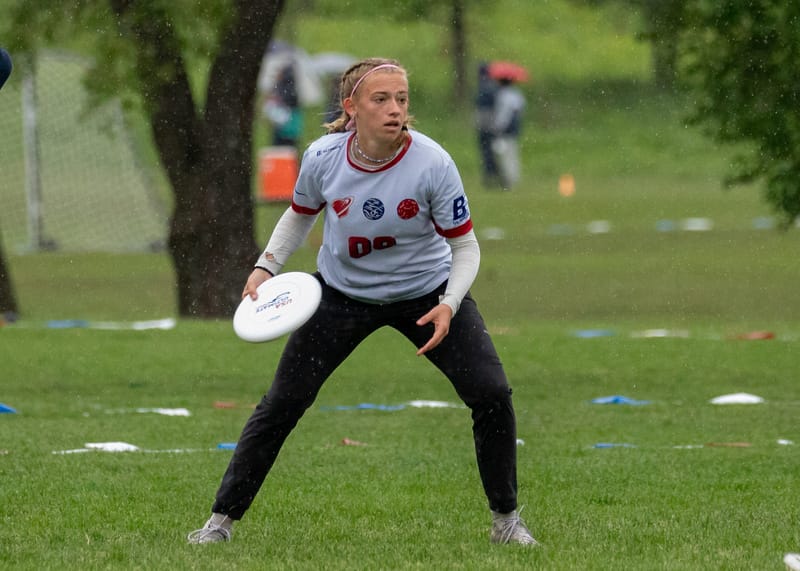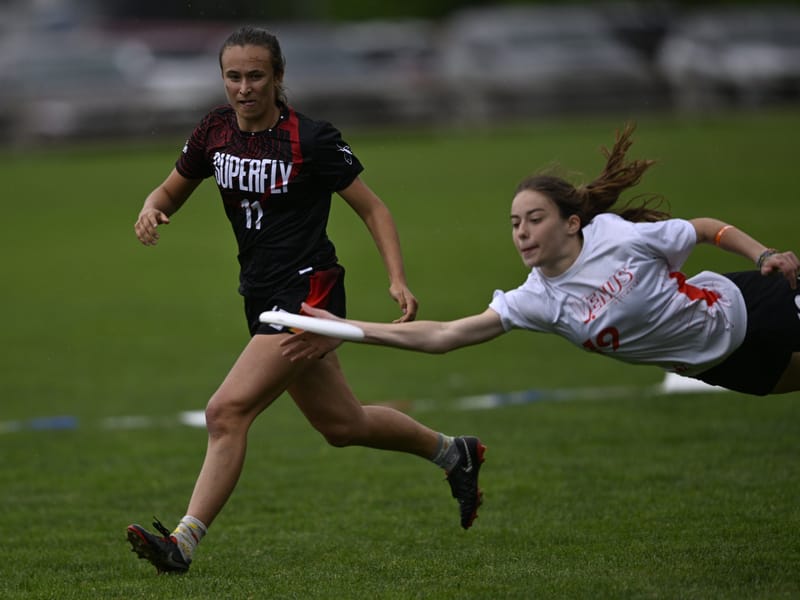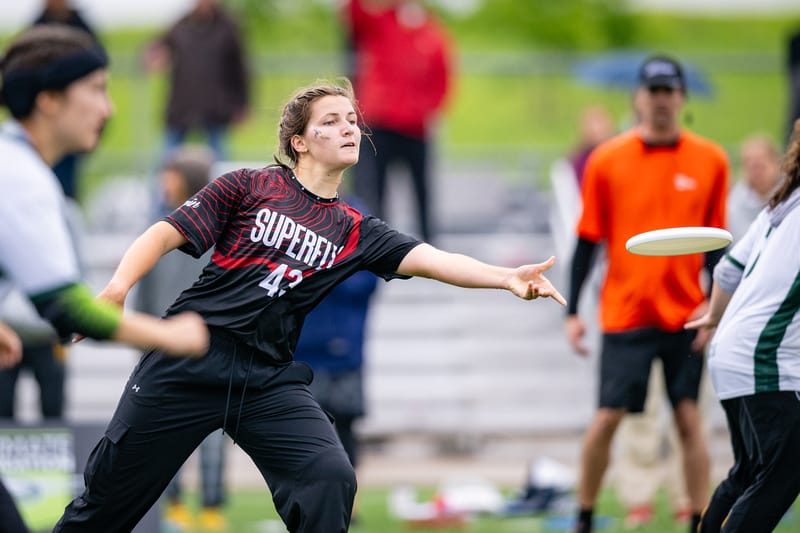The first-years who have already established themselves among the division's best overall players.
June 18, 2024 by Felicia Zheng, Edward Stephens and Laura Osterlund in Awards with 0 comments
Each year, Ultiworld presents our annual College Awards. Our staff evaluates the individual performances of players from throughout the season, talking to folks around college ultimate, watching film, and look at statistics, voting upon the awards to decide those to be honored. The regular season and the college Series are both considered, with extra emphasis for performances in the competitive and high-stakes environment at Nationals.
The Rookie of the Year award recognizes players who impressed in their first college ultimate seasons. That includes both freshman and true rookies. Each season, it feels like this group of players becomes more impactful; as the level of youth play and of coaching and development rise, so does the bar for the division’s best rookie. Whether they come to the college game from years of youth experience, a background in other sports, or none of the above, these players made debuts to remember in high-level college play.
- Player of the Year
- All-American First Team
- All-American Second Team
- Offensive Player of the Year Award
- Defensive Player of the Year Award
- Breakout Player of the Year Award
- Rookie of the Year Award
- Coaches of the Year Award
D-I Women’s 2024 Rookie Of The Year
Chagall Gelfand (Carleton)

If there’s one thing to be certain of in the college scene, it’s that the Seattle-to-Syzygy pipeline is strong. Its newest success story? None other than Chagall Gelfand. Despite being a rookie, she assumed the role of a center handler more often than not and stepped onto the field with the confidence and poise of a club veteran. It’s no wonder why she became a rock on Syzygy’s offense. Even when things weren’t going in Syzygy’s favor, the 2022 U20 World Champion always stepped up to the challenge and never ran out of energy to make her presence on the field known. She emerged as a leader both on the pitch and on the stats page: her 18 assists easily paced Carleton at Nationals, and she tied for fifth overall at the tournament.
One thing that set Gelfand apart from her competitors was her ability to push a defense’s best look to unlock and drive an offense. She was not afraid to make some of the risky shots and big moves to get her team’s offense moving. In doing so, she could open up the field every time she had the disc in her hands, no matter the defense. Matchup? Too easy. Perhaps a zone or a bracket? She found a way to shred it. Even in moments when she had her turn making cuts or playing defense, she was one of the players who could seemingly control the field every time. That’s a great look for the present, and an even better one for the future.
– Laura Osterlund
First Runner-Up
Grace Maroon (UPenn)

This hardware has been a long time coming for Grace Maroon. Going into the season, Maroon was one of the most decorated rookies of her class with YCC, U20, and a stint with Philadelphia AMP on her resume. She certainly lived up to all of the hype and more, leading Venus to the first regional title and bracket appearance at Nationals in program history.
Despite her youth, Maroon played with the poise of a veteran. She was capable of doing it all for UPenn, from working the backfield to initiating cuts or streaking deep herself. Wherever Venus needed her, Maroon was there, working her magic to keep the disc flowing. Maroon didn’t limit her magic to offense: she was a fiery defender too, consistently generating blocks off of her opponents to punch in those crucial breaks. Need proof? Just watch her do her thing in this clip from Ohio Valley Regionals. Two things are clear: Maroon’s got some serious takeover power and this season’s just the beginning for her.
– Felicia Zheng
Second Runner-Up
Harper Baer (Stanford)

In the biggest moments of their season – read: down the stretch as they clawed back against Vermont and fought to reach the final – Stanford put faith in their mature-beyond-her-years rookie, Harper Baer. Baer’s immediate impact for Superfly not only pushed Stanford in that crucial game, but pushed them to that level from the beginning of the year. Trusted for her ample catch radius and possession-saving layouts as much as for her clear-headed decision making and the gorgeous edges on her away shots, Baer gave the team the kind of shot in the arm they might have expected from a four-year grad transfer. The difference? She’s still got the lion’s share of a career ahead of her. Watch out.
– Edward Stephens